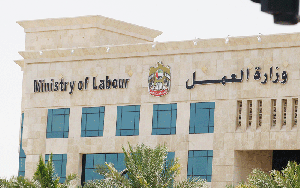Jeddah, Aug 14: The Ministry of Labor has said it will not make any exceptions to its decision not to allow private firms falling in the yellow level of the Nitaqat Saudization program to keep their foreign manpower for more than four years even as top industry officials questioned the viability of the decision, which they said will be difficult to implement.
"Not even the manpower with accumulated experience or those born in Saudi Arabia will be exempted from the decision," business daily Al-Eqtisadiah reported on Wednesday quoting an official source in the ministry.
The decision will come into effect on Oct. 25 and six months later, the period of stay will be reduced to two years only.
"The decision will strictly apply to all expatriates working for any of the firms in the yellow Nitaqat category whose stay in the Kingdom has exceeded four years," he said.
The source, however, said expatriate workers of these companies will be allowed to transfer their residence permits to firms in the platinum and green Nitaqat levels.
He said the ministry took the decision to force companies in the yellow Nitaqat level to expedite the Saudization process. "The ministry is determined to employ more Saudis in the private sector," he added.
Meanwhile, members of the board of directors of the Jeddah Chamber of Commerce and Industry are unanimous in their opinion that it will be extremely difficult for the ministry to enforce its decision, especially in the industrial and contracting sectors.
They warned that the decision will create a manpower deficiency and will adversely affect the Saudization process.
The members also warned against the security, social and economic implications the decision would have on the labor market. They said the Kingdom would become a source of technical and vocational manpower for other countries if the decision was imposed.
Board member Ahmed Al-Marbaie said the decision could not be implemented on the industrial and contracting companies because they depend mainly on expatriate manpower. "These companies are always looking for expatriate manpower with sufficient experience, which they cannot find among Saudis," he said.
Al-Marbaie said if the ministry was adamant on its decision, the Kingdom would lose its trained and qualified foreign manpower. "In this case, we will be sending the qualified foreign manpower to other countries on a gold platter," he said.
"It is not acceptable to lose our trained foreign manpower and the workers who were born in the Kingdom as a result of this decision," he added.
Ibrahim Batterji, deputy chairman of the chamber's industrial committee, said it is not simply possible for the private companies to train the foreign manpower only to lose them in four years.
He warned that as a result of the decision, people might leave the industrial and contracting sectors and would invest in the commercial sector or the stock market instead.
"Saudization needs more time until the national carders are ready to accept all sorts of jobs. We will not be able to solve the problem of unemployment among Saudis by such decisions," he said.






Comments
Add new comment